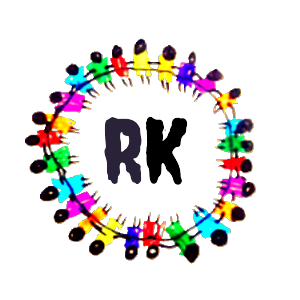Learning C effectively involves a structured approach that covers basic to advanced concepts. Here’s a comprehensive outline to guide your learning journey:
1. Introduction to C
- Overview of C: Learn about C’s history, its uses, and why it’s influential.
- Setting Up C: Install a C compiler (GCC, Clang) and set up a development environment (IDEs like Code::Blocks, Dev-C++, or Visual Studio Code).
2. Basic Syntax and Operations
- Hello, World!: Write your first C program.
- Basic Syntax: Understand C’s syntax, semicolons, comments, and basic rules.
- Data Types: Learn about C’s data types (int, float, double, char).
- Variables: Declaration and initialization of variables.
- Constants: Defining and using constants (
#defineandconst).
3. Control Structures
- Conditional Statements: if, else if, else, and switch-case.
- Loops: for, while, and do-while loops.
- Control Flow Statements: break, continue, and goto.
4. Functions
- Defining Functions: Function declarations, definitions, and calling functions.
- Parameters and Arguments: Passing arguments by value and by reference.
- Scope and Lifetime: Understanding variable scope (local and global) and lifetime.
5. Arrays and Strings
- Arrays: Declaration, initialization, and manipulation of single-dimensional and multi-dimensional arrays.
- Strings: String handling using arrays of characters and standard library functions (e.g.,
strcpy,strcat,strlen).
6. Pointers
- Basics of Pointers: Declaration, dereferencing, and pointer arithmetic.
- Pointers and Arrays: Relationship between pointers and arrays.
- Pointer to Pointer: Understanding double pointers.
- Dynamic Memory Allocation: Using
malloc,calloc,realloc, andfree.
7. Structures and Unions
- Structures: Defining and using structures, accessing structure members.
- Unions: Understanding unions and their uses.
- Enums: Defining and using enumerations.
8. Input and Output
- Standard I/O: Using
printfandscanffor formatted input and output. - File I/O: Reading from and writing to files using
fopen,fclose,fread,fwrite,fprintf, andfscanf.
9. Preprocessor Directives
- Macros: Using
#definefor macros. - File Inclusion: Using
#includeto include header files. - Conditional Compilation: Using
#if,#ifdef,#ifndef,#else,#elif, and#endif.
10. Advanced Topics
- Bit Manipulation: Using bitwise operators (
&,|,^,~,<<,>>). - Memory Management: Understanding memory layout (stack vs. heap) and avoiding memory leaks.
- Command-Line Arguments: Handling command-line arguments in
main(int argc, char *argv[]).
11. Data Structures
- Linked Lists: Singly and doubly linked lists.
- Stacks and Queues: Implementation and use cases.
- Trees: Basic concepts of binary trees and binary search trees.
- Graphs: Basic concepts and representation.
12. Algorithms
- Sorting Algorithms: Implementing and understanding bubble sort, selection sort, insertion sort, merge sort, quicksort.
- Searching Algorithms: Linear search and binary search.
13. Error Handling
- Error Handling: Using
errno,perror, andstrerrorfor error reporting. - Setjmp and Longjmp: Non-local jumps for error handling.
14. Modular Programming
- Header Files: Creating and using header files.
- Static and Extern: Understanding
staticandexternkeywords.
15. Concurrency
- Multithreading: Basics of threading using POSIX threads (pthreads).
- Synchronization: Using mutexes and semaphores to handle concurrency issues.
16. Best Practices
- Code Readability: Writing clean and maintainable code.
- Documentation: Commenting and documenting your code effectively.
- Version Control: Using Git for version control and collaboration.
17. Project-Based Learning
- Build Projects: Start with small projects like a calculator, to-do list, or simple game.
- Incremental Complexity: Move on to more complex projects like a text editor, mini shell, or basic network server.
18. Continuous Learning
- Community Engagement: Join C programming communities on Stack Overflow, Reddit, or Discord.
- Stay Updated: Follow C-related blogs, forums, and news.
- Advanced Resources: Read advanced books like “The C Programming Language” by Kernighan and Ritchie, and “Expert C Programming: Deep C Secrets” by Peter van der Linden.
By following this outline, you’ll build a solid foundation in C and progressively advance your skills through practical application and continuous learning.

Leave a Reply